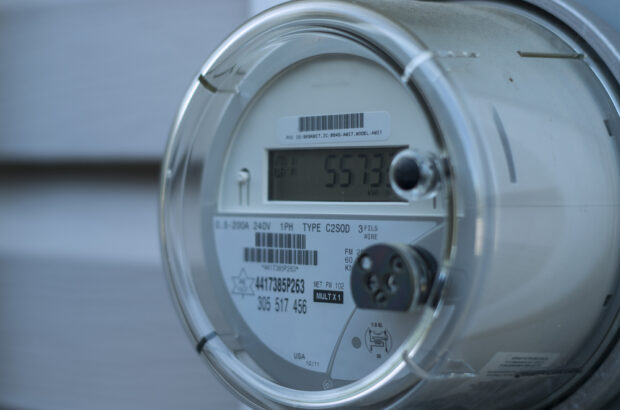As the summer heat peaks in Wilmington, DE, commercial property owners and facility managers face more than just rising utility bills. Non-compliance with Delaware’s evolving commercial energy codes—especially those governing HVAC systems—can lead to costly fines, failed inspections, and long-term operational inefficiencies. Whether you’re managing an office building downtown or overseeing a warehouse near the port, understanding and adhering to Delaware’s energy requirements is more important than ever. In this guide, we’ll break down the essential steps to stay compliant, avoid penalties, and improve HVAC efficiency in Wilmington this summer.
Understanding Delaware’s Commercial Energy Codes
Delaware’s commercial energy codes are part of a broader statewide initiative aimed at reducing greenhouse gas emissions, promoting energy efficiency, and aligning with national standards like the International Energy Conservation Code (IECC). The state adopts these codes to ensure commercial buildings meet minimum energy performance requirements for systems like lighting, insulation, and—most notably in summer—HVAC compliance.
In Wilmington, DE, commercial HVAC code compliance means meeting both the state mandates and local interpretations enforced by city building officials. These codes cover a range of criteria: equipment sizing, seasonal energy efficiency ratio (SEER) requirements, ventilation rates, economizers, and programmable thermostat controls. Buildings that fail to meet these standards may be penalized, especially during the hotter months when energy consumption spikes and regulatory scrutiny intensifies.
For property owners and business operators, understanding the codes is only the first step. Implementation is where many fall short. Whether you’re constructing a new building or retrofitting an older one, ensuring your HVAC system meets or exceeds Delaware’s requirements is crucial.
Why Summer is the Season for HVAC Code Violations
Wilmington’s humid summer climate puts commercial HVAC systems to the test. This seasonal demand surge often exposes system inefficiencies, outdated equipment, and non-compliant installations—just in time for surprise inspections or tenant complaints. HVAC compliance in Wilmington, DE is not just about staying on the right side of the law; it’s also about keeping buildings cool efficiently, cost-effectively, and sustainably.
During peak summer months, buildings often exceed typical occupancy rates, and cooling systems run longer hours. This added strain can reveal gaps in code compliance such as oversized or undersized systems, poor duct insulation, or lack of zoning controls. Each of these can lead to code violations that result in hefty fines or mandatory upgrades.
Additionally, inspectors are more active in summer, checking for compliance with cooling system standards, proper economizer function, and the use of energy-efficient chillers or rooftop units. Businesses that haven’t kept up with code updates or failed to document past upgrades may find themselves facing penalties or delays in permits.
To stay compliant, commercial building owners in Wilmington must proactively manage their HVAC systems. This includes scheduling preventative maintenance, keeping records of system performance, and understanding the latest commercial energy codes. Working with a certified HVAC contractor who understands both state and local compliance standards can save significant time and money in the long run.
Strategies for HVAC Efficiency in Wilmington’s Heat
Improving HVAC efficiency in Wilmington isn’t just about avoiding fines—it’s also a smart investment. With energy prices on the rise, optimizing cooling performance can lead to substantial cost savings while also enhancing tenant comfort and system longevity.
Start by conducting a professional energy audit. This will identify inefficiencies in your current HVAC setup, such as leaks, outdated components, or poor insulation. Many energy providers and city programs offer rebates or incentives for these audits, which can serve as a valuable baseline for improvement.
Next, upgrade outdated HVAC units. Delaware’s energy codes mandate minimum efficiency levels, and older systems often fall short. High-efficiency models with variable-speed fans, advanced compressors, and smart controls can drastically cut cooling costs. Additionally, make sure economizers are working properly, as they can reduce cooling load by using outside air when conditions allow.
Control strategies are also essential. Installing programmable or smart thermostats can reduce energy waste by adjusting temperatures based on occupancy patterns. Zoning systems, which allow different areas of a building to be cooled independently, can further enhance performance and ensure compliance with Wilmington, DE commercial HVAC code requirements.
Lastly, invest in regular maintenance. Dirty coils, clogged filters, and refrigerant leaks can all lead to reduced efficiency and potential code violations. Partnering with a local HVAC service provider for seasonal tune-ups ensures your system runs optimally and remains in compliance throughout the summer.
Navigating Wilmington, DE Commercial HVAC Code Compliance
Achieving and maintaining code compliance in Wilmington involves more than installing efficient equipment. It requires a comprehensive understanding of the local permitting process, documentation standards, and periodic inspection schedules.
The City of Wilmington, DE requires HVAC contractors and building owners to submit detailed plans before any new installation or major system upgrade. These plans must show compliance with Delaware’s commercial energy codes, including duct design, equipment specs, and control sequences. Failure to provide this documentation can delay project timelines and invite penalties.
Permits are also mandatory. Even replacing a rooftop unit requires city approval, and inspectors will verify the unit’s efficiency rating, duct sealing, and integration with building controls. Some older buildings may qualify for code exceptions or performance-based compliance paths, but these must be negotiated and documented in advance.
Inspections typically follow three stages: rough-in, final, and performance testing. Rough-in inspections focus on ductwork and system layout, while final inspections verify that all equipment meets code. Performance testing, often required for larger buildings, measures the system’s actual efficiency under load. Failing any stage of this process can result in costly rework.
To streamline compliance, Wilmington building owners should maintain an HVAC compliance folder that includes manuals, specs, permits, inspection reports, and energy calculations. Engaging an energy consultant or mechanical engineer with local code expertise can further reduce the risk of error.
The Cost of Non-Compliance—and the Benefits of Getting it Right
Non-compliance with Delaware’s commercial energy codes isn’t just a regulatory hassle—it carries financial, operational, and reputational risks. Fines for violations can range from hundreds to thousands of dollars per incident, and repeated offenses may trigger lawsuits or loss of occupancy permits.
In Wilmington, DE, commercial HVAC code compliance is enforced rigorously, especially in business zones and historic districts where energy usage is closely monitored. Buildings found in violation may also become ineligible for rebates, grants, or financing options tied to energy performance—a missed opportunity for cost savings.
Beyond the fines, non-compliance can hurt tenant retention. Uncomfortable indoor climates, frequent system breakdowns, or visible duct leaks damage your credibility and increase churn. Insurance premiums may also rise for buildings deemed energy inefficient or code non-compliant.
On the flip side, getting compliance right has tangible benefits. Modern, efficient HVAC systems improve occupant satisfaction, reduce downtime, and extend equipment lifespan. Energy-efficient buildings are also more marketable, with lower operating costs and higher lease appeal. In fact, compliance with Delaware’s commercial energy codes can become a competitive advantage in Wilmington’s tight real estate market.
Staying ahead of code changes, investing in quality upgrades, and working with experienced professionals not only keeps your property cool but also keeps your bottom line healthy. Whether you’re managing a single property or a portfolio across Wilmington, HVAC efficiency is no longer optional—it’s a legal and economic imperative.
Conclusion
Navigating HVAC compliance in Wilmington, DE this summer doesn’t have to be a headache. By understanding Delaware’s commercial energy codes, prioritizing system efficiency, and proactively managing code requirements, you can avoid fines, reduce energy bills, and enhance your building’s value. Don’t sweat the details—stay cool, stay compliant, and set your property up for long-term success.
Need Commercial HVAC Repair in Wilmington, DE?
Since 1984, Commercial Equipment Service Inc. has been providing service and sales of commercial/restaurant cooling, refrigeration and heating equipment to Wilmington, Delaware and the surrounding area. We are a locally owned business with over 42 years of experience. Our friendly staff prides itself on our professional attitude and service. Commercial Equipment Service Inc. is a 24/7 on-call service for your appliance needs! We install and repair all refrigeration and cooking equipment, heating and air conditioning, emergency generator sales, kitchen exhaust systems, beverage systems and so much more. Contact us today to learn more about what we can do for you!

